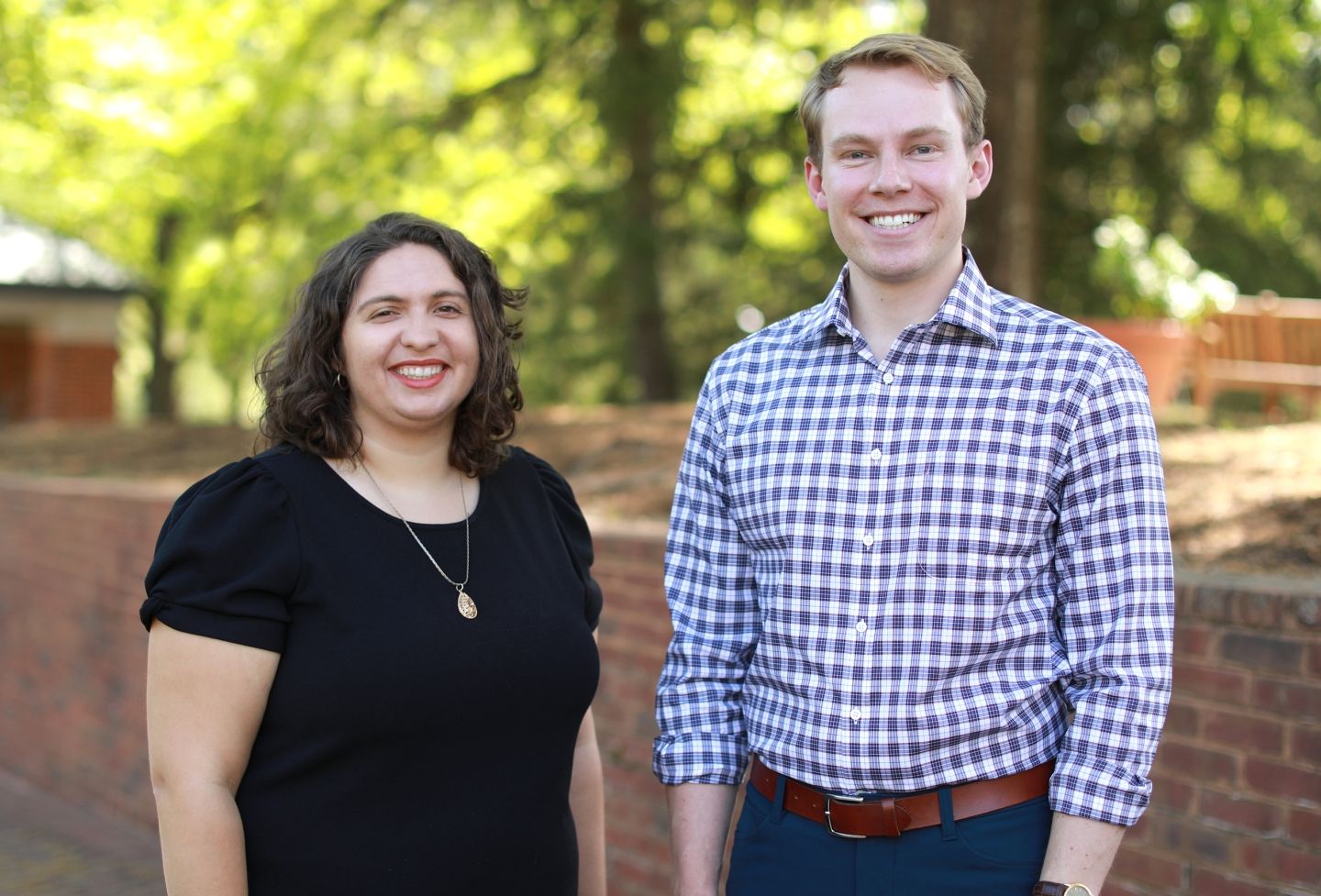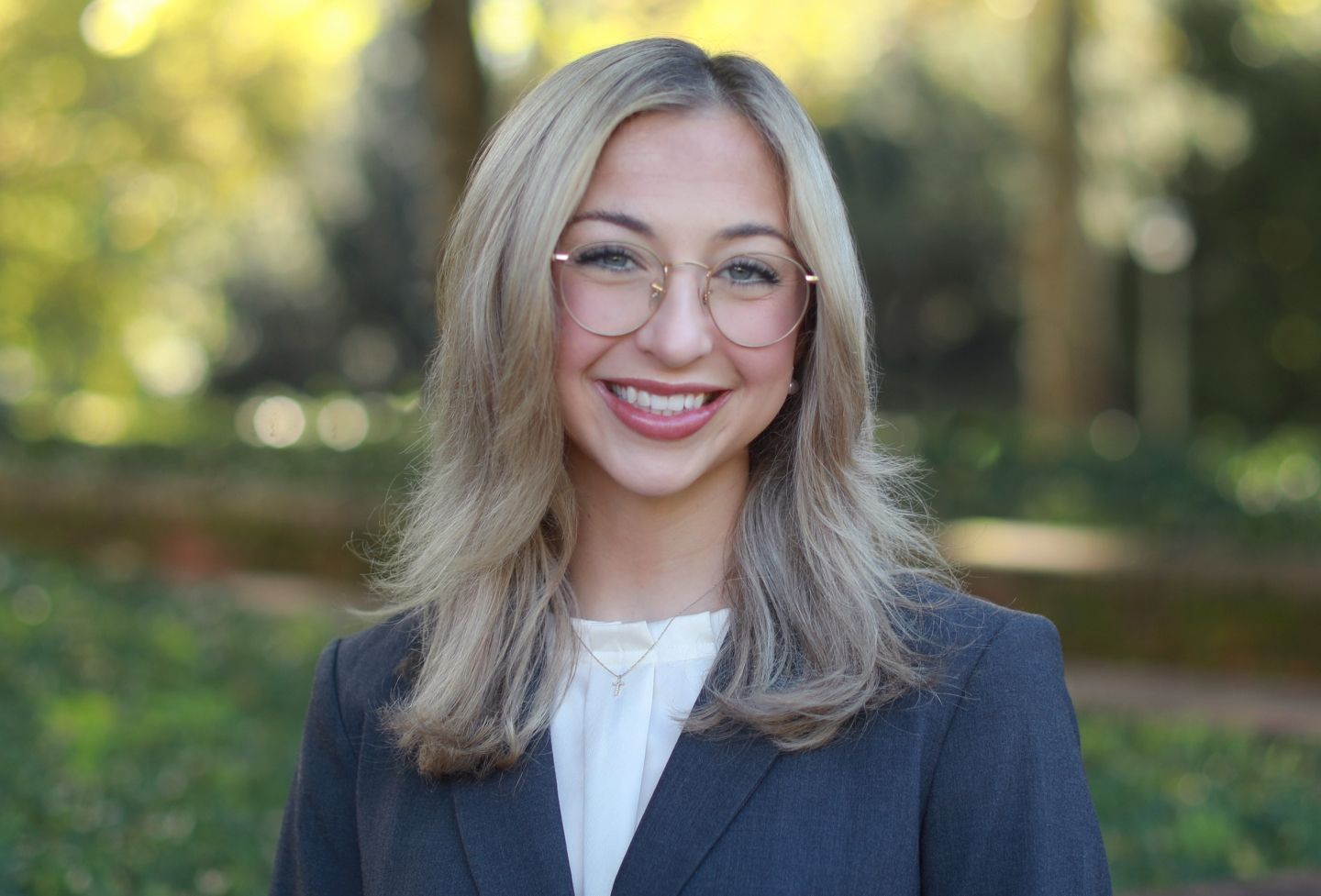Judge Toby J. Heytens, who was confirmed to the Fourth U.S. Circuit Court of Appeals in October 2021, will welcome the University of Virginia School of Law’s Class of 2026 during orientation on Thursday.
Heytens, a 2000 graduate of the Law School, recently spoke about his path from Superior, Wisconsin, to a career that has included a Supreme Court clerkship, private and public appellate litigation, and service as the solicitor general of Virginia. In total, Heytens has argued 10 cases before the U.S. Supreme Court, including six while working at the U.S. Solicitor General’s Office. He served as a professor at the Law School in between government roles and won the All-University Teaching Award in 2016.
Heytens joins more than 130 alumni serving as judges nationwide, including two who were nominated the same day as Heytens, Patricia Tolliver Giles ’98 and Michael S. Nachmanoff ’95.
During law school, Heytens was an editor of the Virginia Law Review and graduated with the highest grade point average in his class. His student note, “School Choice and State Constitutions,” received the Alumni Association Best Note Award.
Heytens served as head coach of UVA’s undergraduate trial advocacy team, which won its third national championship during the 2016-17 season. He won a Raven Award in 2015 for “excellence in service and contribution to the University of Virginia.”
What inspired you to go to law school?
I was just a kid who grew up at the 80s, watched a bunch of TV shows about lawyers, had a big mouth and people said, “You should go to law school.” It’s honestly the unexciting, uninteresting answer.
That is very typical, but how and when did you first fall in love with the law?
I thought I wanted to be a trial lawyer, but I took an appellate litigation class in law school and later clerked for a federal court of appeals judge. Then worked at the solicitor general’s office at the U.S. Department of Justice, and then clerked for Ruth Bader Ginsburg. I think having those sorts of jobs — like bam, bam, bam — was like, “Wow, being an appellate lawyer is really cool.”
Was there any particular moment where it really hit you that you’d fallen into a delicious career?
When I was clerking for RBG, I had the chance to go into the courtroom when it wasn’t open to the public and stand at the lectern. It’s kind of wild how close you are to the bench and how it fills your field of vision. That was a very special moment. At another moment, in June 2020, I was working as the solicitor general of Virginia and I was working from my front porch in Richmond when I learned that the governor was going to announce the next morning that they were taking down the Robert E. Lee monument in Richmond. I used to jog by the one in Richmond, and in Charlottesville I lived two blocks away from the Lee statue that had been the epicenter of the Unite The Right rally. I remember thinking that by this time tomorrow night, I would probably be defending a lawsuit challenging the governor’s decision. (Heytens won that suit, in a unanimous decision from the Virginia Supreme Court, in September 2021.)
What was the first surprising thing you learned in law school?
I’m sure there were a gazillion of them. Probably when I learned that contract doctrine has very little to do with one’s intuitions about when people are morally required to keep their promises. I mean, we don’t punish people for breaking contracts? I remember bouncing very hard off that concept as a fall-semester 1L.
What has been the most important life lesson that law school taught you?
Well, there are a lot of them. At UVA, I learned that it is possible to work very hard — and care a lot about how well you do — while still enjoying those things and the people you do them with.
Do you have any regrets about law school? Would you do anything differently?
Grad school is a serious thing. This is not College, Part Two. But it wasn’t until I moved back as a faculty member that I really appreciated how great Charlottesville and the surrounding area are. I basically got a second chance to live there, but the vast majority of students won’t get that second chance. It’s just — it is genuinely beautiful, in a way that lots and lots of places aren’t. So I think not appreciating and taking advantage of that more is probably my biggest regret.
Do you remember any words of wisdom from the judges you clerked for?
From Judge Becker, the first one is what he described as “Zero Deference.” He wanted to know what his clerks thought, rather than having us attempt to predict what we thought he would think. The other one is, “Other people don’t wait for us.” We all think our own things are most important. But anything you’re doing that someone else is waiting on is the thing you should be taking care of as fast as possible so that other people can get back to the things they need to do.
Anything from Ruth Bader Ginsburg?
She would constantly say that she would’ve never been able to have the life and career she had if she didn’t have a spouse who was completely supportive, which was wildly atypical for Marty Ginsburg’s generation and time. I think that’s true for virtually everybody — I would’ve never been a law professor if my spouse had not agreed with my somewhat insane idea to take a leave of absence from my law firm to become a visiting assistant professor at Cornell. I would almost certainly never have this job at the Fourth Circuit if I’d not taken a leave from my faculty position at UVA to be solicitor general in Virginia, which was a fairly substantial pay cut. Almost nobody who was able to do the things that are really important to them and that require a lot of sacrifices, has sacrificed by themselves. There are family members, there are friends, there are spouses, there are children. That is probably the single biggest thing I took away from RBG.
And you think that’s important for people to think about here at the front end of their legal careers?
Who you decide to spend your life with has a gigantic impact, not just on your personal life, but on your career and on your life and on your family. Where are we going to live? What are we going to do? Neither one of us wants to work at a big firm — how exactly are we going to pay two loans? These honest conversations matter a lot.
Do you remember the moment that you learned you’d been nominated to the Fourth Circuit?
I had just gotten off a plane in Duluth, Minnesota, to visit my family. I had a voicemail from the White House Counsel’s office asking me to call them. And so I called them back when I got off the plane and the person said, “The president is going to announce your nomination tomorrow morning.” It’s funny because even though I knew this was coming, the first words out of my mouth were ones you can’t print.
What’s the process like?
It’s a little bit like callbacks in acting, where they have you read and then they say, “We’ll get back to you.” And most of the time they don’t get back to you at all. But sometimes they get back to you and they want you to come in to do something else, and the more things they ask you to do, the better news it is. I had applied for a Fourth Circuit seat, although I also applied for two other seats on the Eastern District of Virginia. But by the time I was talking to the White House, or even to the senators, they had announced whom they were considering for the District Court, and I was not one of them. In fact, they were both UVA Law graduates and the three of us had our hearings the same day.
What do you miss most about teaching law students?
I really liked the actual class part of teaching, and I miss doing that. I miss getting to know this constant influx of people who have all these interesting backgrounds, and the things that brought them to law school, and what they want to do next.
What would be your biggest piece of advice when it comes to knowing or not knowing what you want to do with your law degree?
First, be open to the possibility that you don’t actually know what you want to do. And that’s fine. Even if you think you’re absolutely certain, spend a little time thinking about and trying something else. Take a class that doesn’t relate to what you want to do, maybe get a low-commitment internship or work at a law firm if you don’t think it’s what you want to do. Ask people you like or admire or respect how they ended up doing what they’re doing and what they like about it.
Anything else?
Once you’ve had a little more experience under your belt, ask yourself what, specifically, makes you happy? What do you like doing and what don’t you like? Think about the times you’ve been happiest or unhappiest at work and ask yourself what you liked about that moment and what you didn't like. I liked being an appellate lawyer. Other people think that would be spending too much of their day reading and writing. But I like that and, more important, I like working in a smaller office with small teams of people who are all working on and talking about the same cases.
Founded in 1819, the University of Virginia School of Law is the second-oldest continuously operating law school in the nation. Consistently ranked among the top law schools, Virginia is a world-renowned training ground for distinguished lawyers and public servants, instilling in them a commitment to leadership, integrity and community service.


